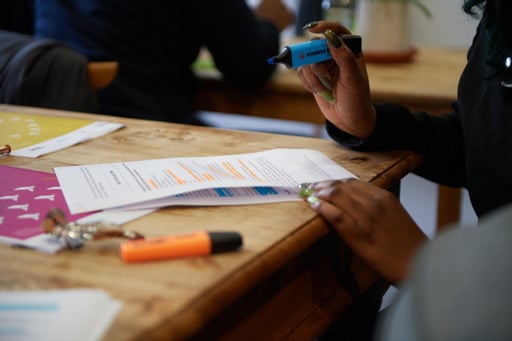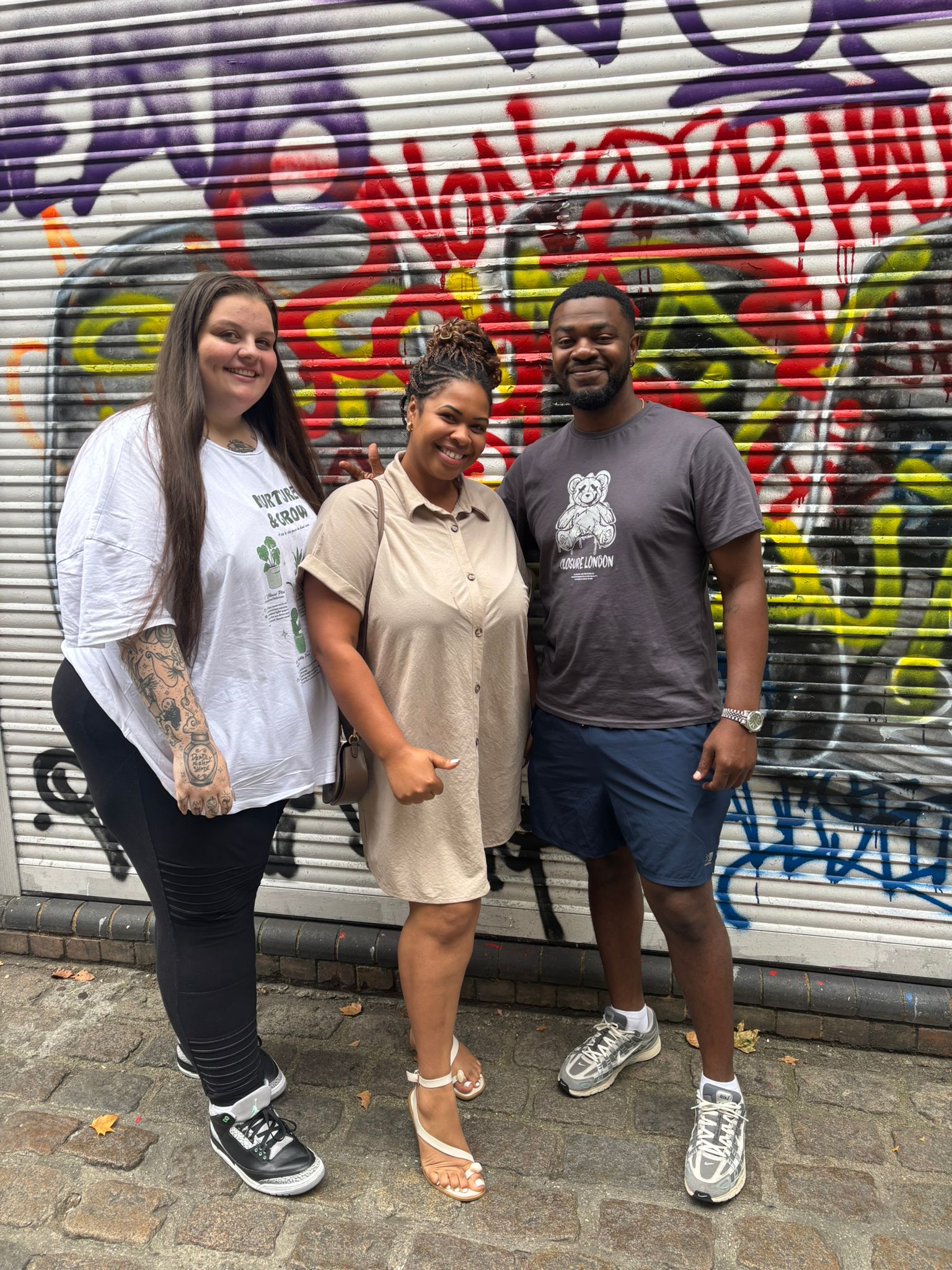Young Justice Advisors exists to bridge the gap between decision-makers in the criminal justice system and the young adults whose lives are most affected by those decisions. The group, now made up of facilitators with direct and familial experience of the justice system, works to challenge negative perceptions of young adults in custody and demonstrate the value of their insight, creativity, and leadership.
“What we’re trying to do,” explains facilitator Nadine, “is help provide a platform for young adults whose voices aren’t really listened to, because they’ve only slowly started being recognised as a cohort. We want to change how they’re seen — not as troublemakers, but as people who, when they’re given time and space, can come up with amazing ideas for change that senior management wouldn’t have necessarily thought of.”
 The project began as an initiative within Leaders Unlocked, involving young adults in consultations such as the Lammy and Charlie Taylor Reviews. From those early sessions, the team recognised the deep disconnect between policy and lived reality. What started as informal workshops soon became a structured feedback loop alongside creating resources with authentic voices at the helm. They designed four resources for those transitioning from the youth estate to the adult state, those in the care system and also being released from prison. The group facilitated sessions inside prisons, in the community and with those directly affected by the care and justice system, collecting stories and insights, and presenting them back to senior figures at not only the Ministry of Justice and HM Prison and Probation Service, but with practitioners too.
The project began as an initiative within Leaders Unlocked, involving young adults in consultations such as the Lammy and Charlie Taylor Reviews. From those early sessions, the team recognised the deep disconnect between policy and lived reality. What started as informal workshops soon became a structured feedback loop alongside creating resources with authentic voices at the helm. They designed four resources for those transitioning from the youth estate to the adult state, those in the care system and also being released from prison. The group facilitated sessions inside prisons, in the community and with those directly affected by the care and justice system, collecting stories and insights, and presenting them back to senior figures at not only the Ministry of Justice and HM Prison and Probation Service, but with practitioners too.
“We were the middle ground,” Nadine recalls. “We were speaking to young adults who have direct lived experience and then taking what we heard straight to the people making the decisions.”
Today, their main focus is direct delivery inside prisons. Each programme is co-designed with participants to reflect the distinct culture of the establishment. Sessions explore life inside, relationships with staff, and how systems can improve. For many, it’s the first time they’ve been asked how they’re doing.
“There’s nothing else that builds up young adults in the system,” Nadine says. “What we do is unique. It fosters an environment where they feel comfortable, they feel safe, they feel able to be heard — and part of something.”
The results can be transformative. One participant who refused to speak throughout the programme ultimately joined the final presentation after encouragement from his peers. Five others earned open conditions (D-Cat status) as a direct result of taking part. Some return as co-facilitators. “The development that comes in such a short space of time, just through giving a shit, is insane,” Nadine reflects. “I always feel like a proud mum at the end of our programmes.”
Their impact also extends to staff and systems. In several prisons, the programmes have led to co-designed “ways of living” agreements between staff and residents. One roundtable resulted in mutual commitments around respect, space and safety. Another facilitated a storytelling session where staff and young adults shared life experiences.
Thanks to the Pathways Fund, the group has been able to expand its reach and deepen its delivery. Funding covered day rates, travel, away days, and “the small things that matter” — like taking in biscuits to sessions. “It might only be two pounds,” Nadine says, “but that two pounds makes someone’s day. And it doesn’t come out of our own pockets.”

Blagrave’s flexibility proved invaluable when a planned transition to CIC status fell through due to Nadine’s mental health. “With other funders, it would have been all about the project,” she says. “With Blagrave, it was about me as a person. They gave us humanity. They said: ‘Make sure you’re okay first, and then we’ll figure it out.’ That kind of support is rare.”
Even after setbacks, Blagrave’s trust allowed the group to pivot. “We co-designed Plan B together, and they still supported it. Their approach made it possible to keep going — and keep delivering.”
Now operating as a small facilitator group, Young Justice Advisors continues to deliver funded programmes across multiple prisons. Their next steps include a roundtable with HMPPS and the Ministry of Justice to present their latest insights and advocate for change.
Nadine is clear on why this work matters: “Young adults are still not supported as a distinct group in the system. There’s no one doing what we do. We’re proving that when you treat people with respect, they rise to it. They don’t need fixing. They just need to be listened to.”